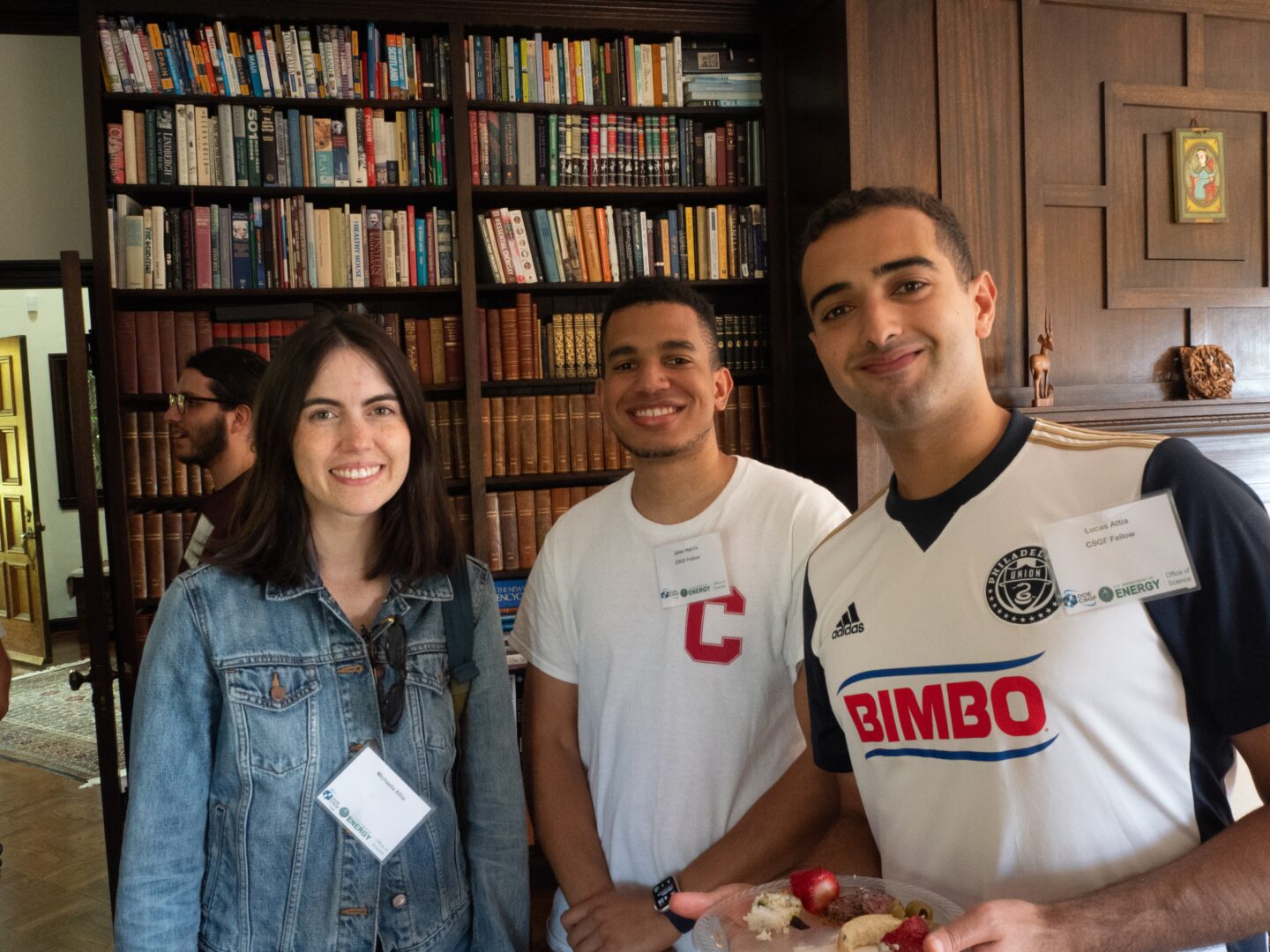This year, the Lawrence Berkeley National Laboratory (Berkeley Lab) welcomed 17 Department of Energy (DOE) Computational Science Graduate Fellows (CSGF) — a record for any DOE Lab in a calendar year. Drawing from diverse scientific and engineering disciplines, the fellows share a common interest in using computing in their research. Each of these students is pursuing a doctoral degree in a field that uses high performance computing (HPC) to solve complex science and engineering problems.
As part of the fellowship, each student must complete a three-month practicum (research experience) at one of the 20 DOE National Laboratories of their choice, which gives fellows an idea of how the unique team-science research environments at the national labs differ from those in academia or industry. This experience is designed to strengthen ties and create a workforce pipeline between the national academic community and DOE laboratories so that the fellowship’s multidisciplinary nature builds the national scientific community. Today, more than a dozen former CSGF Fellows work at Berkeley Lab, and many of these alumni are mentoring current fellows doing their practicum at the Lab this year.
“Berkeley Lab is a perennially attractive place to do a practicum; we’re doing great science in a great place,” said Dan Martin, a CSGF alumnus and lead of Berkeley Lab’s Applied Numerical Algorithms Group.
“The tenet of stewardship and core values enshrined at Berkeley Lab inspired me to pursue my practicum here. The opportunity to work in an environment where team science, service to humankind, public trust, imagination and innovation, and respect for others are first principles resonates with my philosophy and values,” said Olorundamilola “Dami” Kazeem, a UC Berkeley Graduate student who completed his practicum at Berkeley Lab last fall and is continuing to do research at the Lab in 2023.
Kazeem adds: “The best parts of my practicum experience have been the exposure to state-of-the-art facilities and resources, gaining a wealth of new skillsets and tools, and guidance from experts in their fields from whom I have learned different ways of research style and scientific thought. I have had the opportunity to gain access to and explore Advanced Light Source, Advanced Quantum Testbed, and National Energy Research Scientific Computing (NERSC). The mentorship and guidance I received here have come from a wide and diverse community of the Lab. It has reshaped my worldview, both personally and professionally. Specifically, the mentorship and guidance from my peers and supervisors to the admins and postdocs in the Applied Computing for Scientific Discovery Group have been invaluable in redefining my academic locale and journey.”
This year’s CSGF Fellows at Berkeley Lab are:
- Lucas Attia (ETA; Massachusetts Institute of Technology)
- Paul Beckman (AMCR; New York University)
- Elizabeth Bennewitz (AMCR; University of Maryland, College Park)
- Marianne Cowherd (ESA; UC Berkeley)
- Ishani Ganguly (AMCR; Columbia University)
- McKenzie Hagen (SDD; University of Washington)
- Chris Kane (Physics; University of Arizona)
- Jalen Harris (AMCR; Cornell University)
- Alexander Johnson (SDD; Harvard University)
- Grant Johnson (Physics; Princeton University)
- Jerry Liu (SDD; Stanford University)
- Shehan Parmar (Materials; Georgia Institute of Technology)
- Sonia Reilly (AMCR; New York University)
- Timothy (Joey) Taylor (ESA; University of Colorado Boulder)
- Julia Wei (AMCR; Harvard University)
- Boyan Xu (Biosciences; UC Berkeley)
- Olorundamilola “Dami” Kazeem (AMCR; Johns Hopkins University & UC Berkeley)


